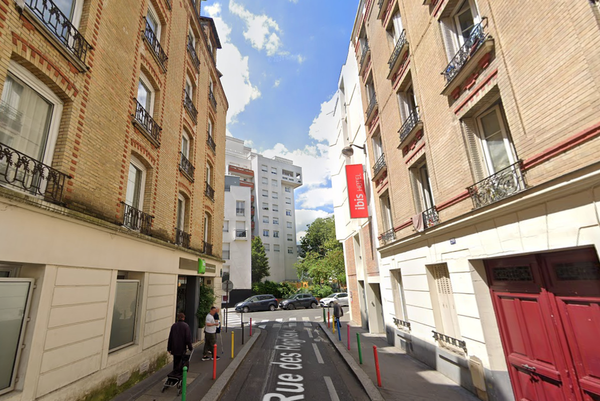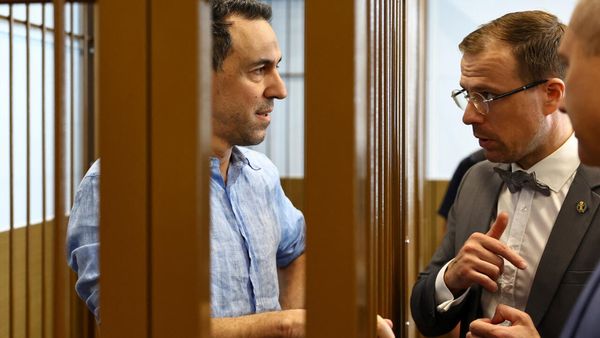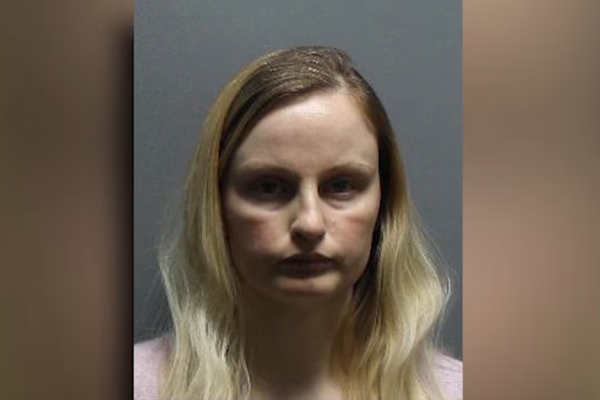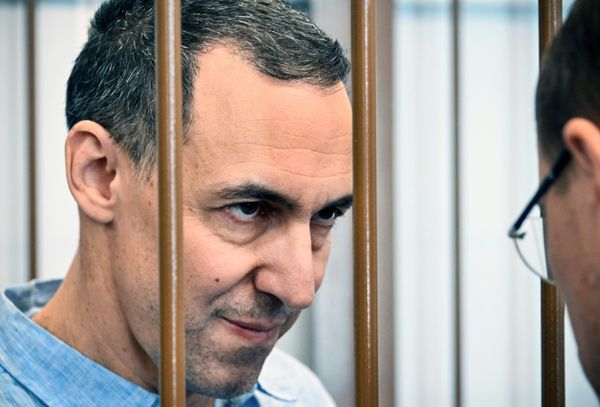
On Wednesday night, a federal judge issued a preliminary injunction against a new California law that makes physicians subject to professional discipline for sharing COVID-19 "misinformation" with their patients. U.S. District Judge William B. Shubb concluded that California's definition of misinformation is unconstitutionally vague, failing to give doctors fair notice of which conduct the statute covers, which is a basic requirement of due process. That vagueness is especially problematic in this context, Shubb said, because it is apt to have a chilling effect on speech protected by the First Amendment.
A.B. 2098, which took effect on January 1, redefines the "unprofessional conduct" policed by state regulators to include medical advice that promotes "misinformation" about COVID-19, such as "false or misleading information regarding the nature and risks of the virus," "its prevention and treatment," and "the development, safety, and effectiveness of COVID-19 vaccines." The law defines "misinformation" as "false information that is contradicted by contemporary scientific consensus contrary to the standard of care."
What does that mean? The plaintiffs in Høeg v. Newsom, who include several California doctors represented by the New Civil Liberties Alliance (NCLA), complained that they had no way of knowing. Shubb agrees, saying the state's definition of misinformation "fails to provide a person of ordinary intelligence fair notice of what is prohibited" and "is so standardless that it authorizes or encourages seriously discriminatory enforcement."
The central problem, Shubb says, is that the phrase "contemporary scientific consensus" has no clear meaning, especially in the context of COVID-19, a new disease that has generated conflicting and evolving scientific opinions. "It appears that the primary term at issue—'contemporary scientific consensus'—does not have an established technical meaning in the medical community," he writes. "Defendants provide no evidence that 'scientific consensus' has any established technical meaning."
Shubb says the law therefore forces doctors to speculate about what that term means:
Who determines whether a consensus exists to begin with? If a consensus does exist, among whom must the consensus exist (for example practicing physicians, or professional organizations, or medical researchers, or public health officials, or perhaps a combination)? In which geographic area must the consensus exist (California, or the United States, or the world)? What level of agreement constitutes a consensus (perhaps a plurality, or a majority, or a supermajority)? How recently in time must the consensus have been established to be considered "contemporary"? And what source or sources should physicians consult to determine what the consensus is at any given time (perhaps peer-reviewed scientific articles, or clinical guidelines from professional organizations, or public health recommendations)? The statute provides no means of understanding to what "scientific consensus" refers.
In practice, politicians tend to define scientific consensus based on the pronouncements of public health agencies such as the Centers for Disease Control and Prevention (CDC). But official advice on subjects such as modes of transmission, the merits of universal masking, the utility of cloth masks, the effectiveness of vaccines in preventing the spread of COVID-19 (as opposed to reducing disease severity), and the basis for specific social distancing recommendations has shifted repeatedly over the course of the pandemic. So have treatment practices such as the use of intubation and specific drugs.
"A 'scientific consensus' concerning COVID-19 is an illusory concept, given how rapidly the scientific understanding and accepted conclusions about the virus have changed," Shubb says, citing an expert declaration submitted by the plaintiffs. "The so-called 'consensus' has developed and shifted, often within mere months, throughout the COVID-19 pandemic….Certain conclusions once considered to be within the scientific consensus were later proved to be false. Because of this unique context, the concept of 'scientific consensus' as applied to COVID-19 is inherently flawed….Because the term 'scientific consensus' is so ill-defined, physician plaintiffs are unable to determine if their intended conduct contradicts the scientific consensus, and accordingly 'what is prohibited by the law.'"
The defendants, who include California Gov. Gavin Newsom and officials at the state medical board, argued that the phrase "contrary to the standard of care" clarifies the definition of misinformation. "This provision is grammatically incoherent," Shubb notes. "It is impossible to parse the sentence and understand the relationship between the two clauses—'contradicted by contemporary scientific consensus' and 'contrary to the standard of care.'"
The defendants claimed "the two elements are entirely separate requirements that each modify the word 'information,'" Shubb says. "This interpretation is hard to justify. If the Legislature meant to create two separate requirements, surely it would have indicated as [much]—for example, by separating the two clauses with the word 'and,' or at least with a comma. Further, the concept of 'standard of care' pertains to the nature and quality of treatment that doctors provide or fail to provide. It is thus difficult to accept defendants' contention that the term 'standard of care' modifies the word 'information.' By its very nature, the standard of care applies to care, not information."
Another "equally plausible (or perhaps equally implausible) interpretation," Shubb notes, "is that any time a doctor's conduct contradicts the scientific consensus, it is therefore contrary to the standard of care. Such a reading would distort the existing meaning of the term 'standard of care' by creating an additional statutory definition in the context of COVID-19." Even if the state's interpretation were accepted, he adds, it would fail to clarify what "contemporary scientific consensus" means.
The defendants also argued that misinformation must be "false," which narrows the definition or at least "provides truthfulness as a defense." But how is falsity to be determined? If that judgment is based on what the "scientific consensus" supposedly says, it raises the same vagueness issue.
As examples of clearly established scientific propositions, the state cited facts such as "apples contain sugar," "measles is caused by a virus," and "Down's syndrome is caused by a chromosomal abnormality." Medical advice that denied those facts would clearly be "false information." In the context of COVID-19, a doctor who warned patients that vaccines contain microchips likewise would be saying something that is demonstrably false.
But where does that leave a doctor who, during a conversation with a patient, questions the scientific basis for the CDC's masking recommendations or the benefits of vaccination for young, healthy patients who face a very low risk of life-threatening COVID-19 symptoms? Since such issues are much more contentious than the examples cited by the defendants, it is much harder to say that a particular position is "false."
Assuming that A.B. 2098 is ambiguous, the state said, Shubb should adopt a "narrower construction" that avoids constitutional issues by requiring that misinformation include three elements: It is "false" (however that might be determined), it contradicts the "contemporary scientific consensus" (however that might be defined), and it is "contrary to the standard of care" (a concept that the law seems to redefine). "What defendants propose is not a narrowing or limiting construction at all," Shubb writes. "Rather, the proposed construction would require the court to essentially '[r]ewrite[e] the statute.' This 'is a job for the [California] legislature, if it is so inclined, and not for this court.'"
The plaintiffs argued that A.B. 2098 violates their First Amendment rights, a concern that was echoed by two state chapters of the American Civil Liberties Union. Because Shubb concluded that the standard established by A.B. 2098 is unintelligible, he did not directly address that claim. But he notes that "vague statutes are particularly objectionable when they 'involve sensitive areas of First Amendment freedoms' because 'they operate to inhibit the exercise of those freedoms.'" To show standing in this context, "a plaintiff 'need only demonstrate that a threat of potential enforcement will cause him to self-censor.'"
Shubb's preliminary injunction does not mean that California cannot discipline doctors accused of "gross negligence," "repeated negligent acts," or "incompetence," which were already covered by the definition of "unprofessional conduct." But it does mean that California physicians do not have to worry about losing their licenses for candidly expressing their opinions about scientifically contentious issues raised by COVID-19.
In its complaint, the NCLA noted that "physicians who are negligent and commit malpractice (for example, a doctor who advises a patient to inject himself with bleach to treat Covid-19) are already subject to tort lawsuits and disciplinary actions by the Medical Board under existing state law." A.B. 2098 went further by suggesting that doctors could be disciplined merely for dissenting from the latest CDC recommendations.
When he signed A.B. 2098, Newsom said he was "concerned about the chilling effect other potential laws may have on physicians and surgeons who need to be able to effectively talk to their patients about the risks and benefits of treatments for a disease that appeared in just the last few years." The implication was that A.B. 2098 would not have such a chilling effect. But as Shubb explains, the law's amorphous standard is an invitation to second-guess the honest judgments of clinicians, which is bound to encourage self-censorship. "Plaintiffs are put between a rock and a hard place," the NCLA said, "fearing repercussions for acting in their patients' best interests by giving them the information Plaintiffs believe their patients need."
The post A Federal Judge Blocks California's Ban on Medical Advice That Promotes COVID-19 'Misinformation' appeared first on Reason.com.







